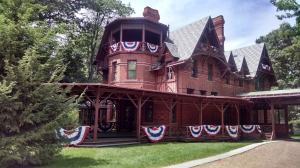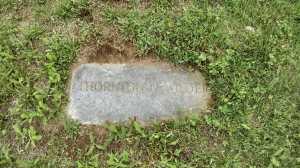
English speakers are so fortunate to claim a language with more words than any other—nearly 200,000—but writers, does it ever feel as if you just can’t find that perfect word? For us, this has to be the ultimate existential crisis. As Mark Twain so aptly said: “The difference between the almost right word and the right word is really a large matter—it’s the difference between the lightning bug and the lightning.”
I’m forever seeking that elusive flash of light, but not just for the purposes of scintillating conversation. I primarily aim to bolster my battery of expression while writing. For example, although “cajole” or “coerce” will do just fine, isn’t a fresh verb such as “dragoon” much more fun?
Of course I love those word quiz books that promise to make us smarter. And I keep Roget’s Thesaurus nearby at all times. I’m also a huge fan of daily emails from Dictionary.com or Merriam-Webster, although they sometimes offer up tongue-twisters such as “phantasmagoric” (having a fantastic or deceptive appearance) that I’m not likely to ever use, except perhaps in a poem. Now there’s an idea!
What works best for me is to discover a new word conveniently within its own context, such as in a book by a favorite author. Works by newspaper columnists are particularly illuminating. Thanks to Tina Brown, a Cambridge educated editor and writer of books such as The Vanity Fair Diaries and The Palace Papers, words such as “farrago” and “miasma” float up regularly in my word soup. A new set of authors—Jonathan Allen and Amie Parnes—has recently led me to discoveries such as “imbroglio,” “mien,” and “shambolic.” I make note of these words and their meanings and keep them handy as I write.
But there’s no inspiration like classic authors. After re-reading a little Henry James, I found myself surrounded by even more choices and unusual pairings. In Portrait of a Lady, James describes Isabel Archer’s ill-fated choice of Gilbert Osmond as a husband in this way: “She tasted of the sweets of this preference, and they made her conscious, almost with awe, of the invidious and remorseless tide of the charmed and possessed condition, great as was the traditional honor and imputed virtue of being in love.”
Invidious! Now this is a new word for me, and it means “likely to arouse or incur anger or resentment in others.” Having both a cat and a dog who can’t help annoying each other gives me plenty of opportunities to practice using both “invidious” and “remorseless.”
I would be remiss without including an example from Vladimir Nabokov, that famous polyglot and one of my most favorite writers. He not only drew from an enviable vocabulary spanning several languages, he was a master of description and metaphor. He opens his short story “Spring in Fialta” with some of the most beautiful prose ever written. (Read it online here). Later, in the same story, when describing an orchestra, Nabokov wrote: “First I noted the ostrich thigh of a harp….” I confess that I will drool over this delicious metaphor all day long.
I hope you’re inspired to assemble your own lexicon of new words. After all, we can’t wait around for lightning to strike. All good word warriors must be prepared to dazzle.
For more writing inspiration, check out my recent Women on Writing interview with my friend and mentor, the inimitable Ruth Moose.



